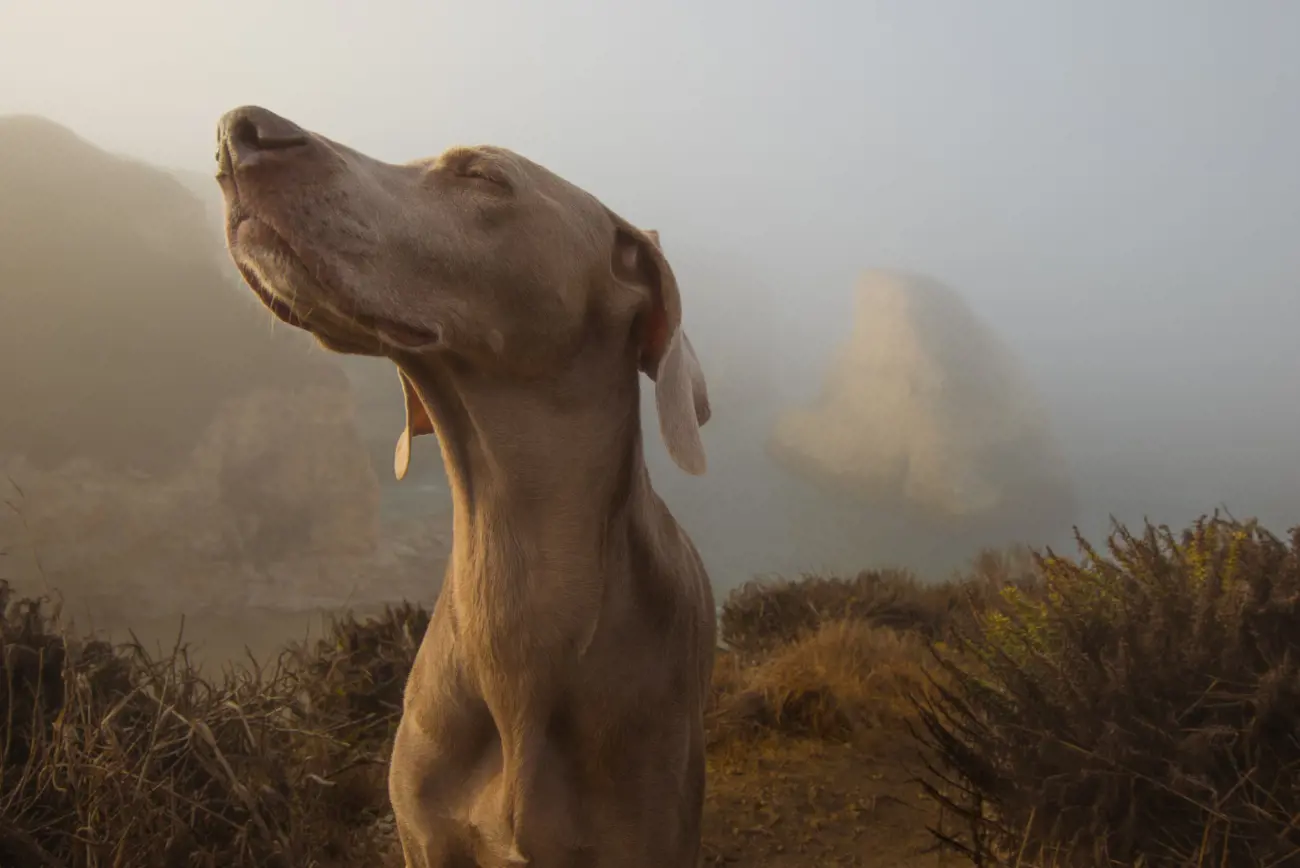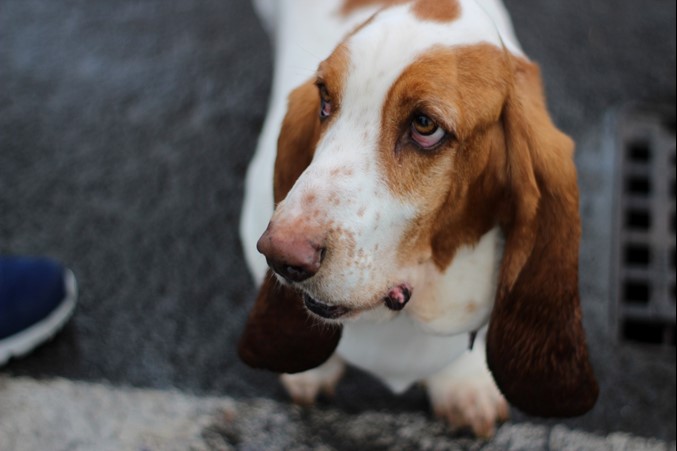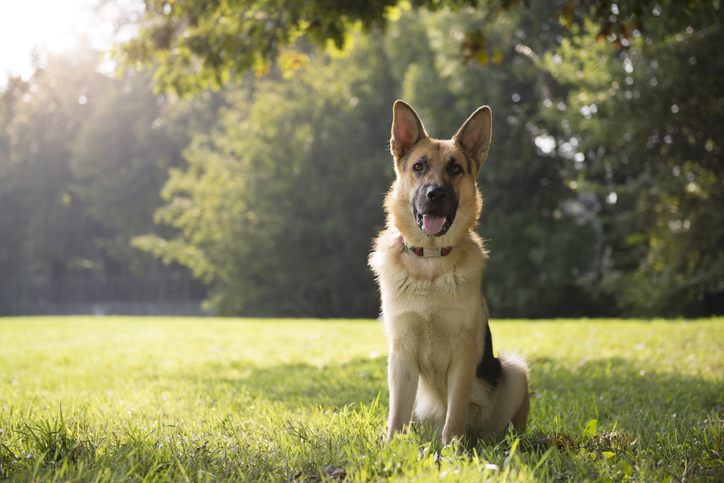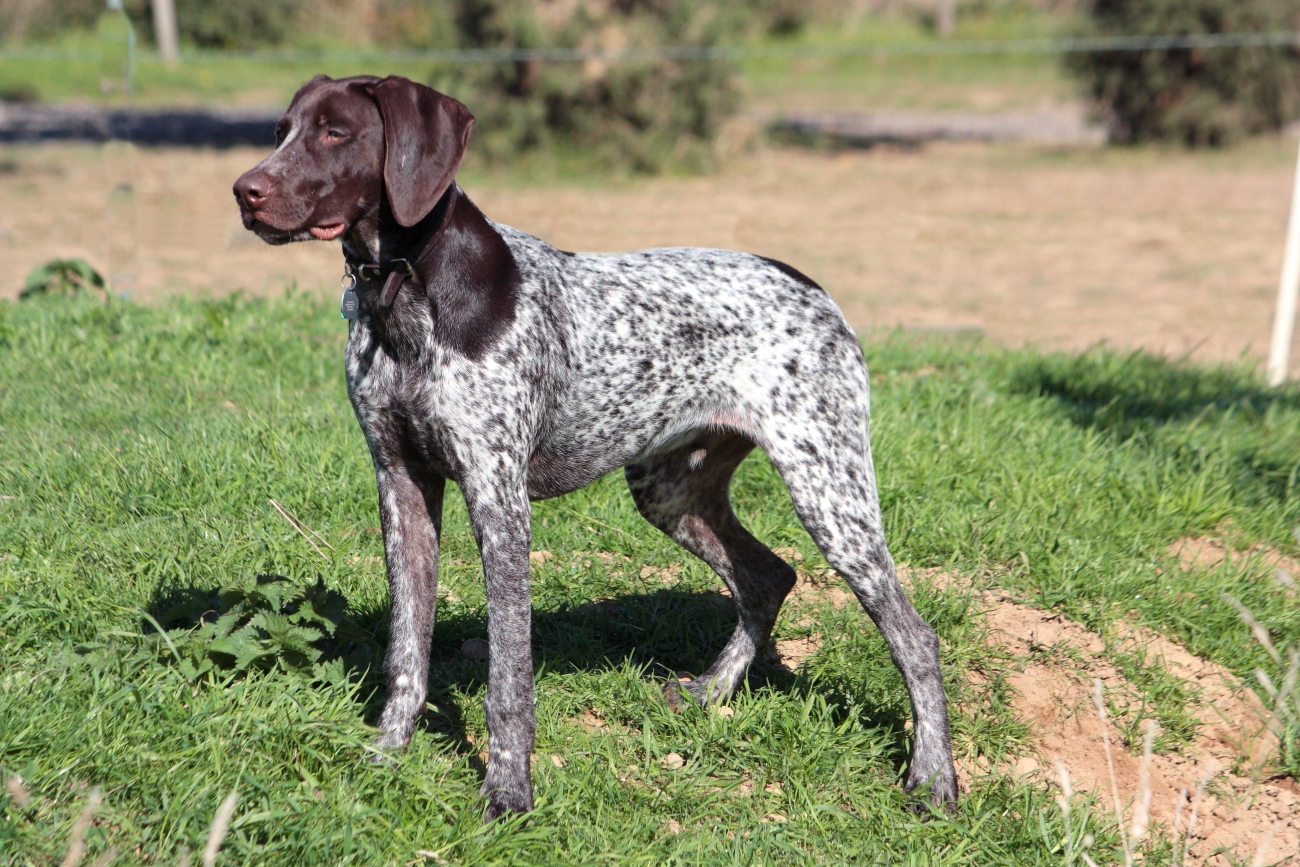Dog breeds with the best sense of smell
19th January, 2022

Dogs are known and celebrated for their acute sense of smell. Indeed, it's one of the particular talents that led to man domesticating dogs' ancestors, the wolves, for help with hunting and tracking prey.
Just why do dogs sniff, in fact? It's a fascinating question that we've looked at in depth, elsewhere on our blog.
In fact, certain breeds are particularly adept at this vital skill – so much so that they are still helping us with a variety of important jobs. Nowadays, though, these tasks are often likelier to be at an airport or crime scene than out in the fields.
Here are the dog breeds with the keenest sense of smell.
Basset Hound
You might think that the Basset Hound's extraordinarily long ears are there to give the breed an acute sense of hearing. In fact, it's another sense that benefits from this adaptation.
Yes, the Basset Hound (originally from France: its name comes from bas, the French for 'low') actually uses those long ears to sweep scents from the ground upwards towards its hyper-sensitive nose. However, that's not the only adaptation of this gifted scent dog: it also uses the loose skin around its chin to trap scents for reference.
Calm, peaceful canines, Basset Hounds – once socialised – are a good bet for family life, as they generally get along with adults, children and other animals alike.

The fact that Bassets have been bred over generations to look a certain way has, unfortunately, lumbered them a few potential health concerns. For example, their excess skin and ear length can lead to skin fold dermatitis (an inflammation of the skin).
They can also be prone to gastric dilatation volvulus (GDV), a potentially fatal condition in which the stomach bloats and twists around itself. Their long, low shape, while effective for tracking, can also leave them open to intervertebral degenerative disc disease (IVDD – also known as a slipped disc), which in turn can lead to back pain and paralysis.
All Basset Hound owners should protect themselves from large vet bills with some specialist dog insurance. This will help cover the cost of potential consultations, medication and operations that might lie further down the line.
Bloodhound
When scent receptors were being handed out, the Bloodhound was clearly at the front of the queue. This breed has an extraordinary 300 million of these tiny nerve endings: compare that to the 100 million that's more typical for most dog breeds, or indeed the paltry six million that we humans have.
No wonder, then, that if there is something to be sniffed out, the Bloodhound is going to be your top dog for the job. Over the years, Bloodhounds have been employed to winkle out a great many things, among them criminals on the run. Their supreme powers include the ability to follow a scent trail either through the air or along the ground.
This species has a long breeding history in Britain: it is believed to have been bred here since 1300 or before. Originally used on the end of a lead to hunt deer and wild boar, Bloodhounds have also been used for centuries to track down humans. In Medieval Scotland, for example, the dogs were used to track cross-border raiders and cattle thieves alike – and were known, splendidly, as 'sleuth-hounds'.
Essentially the canine equivalent of Sherlock Holmes, then, with a uniquely talented nose instead of a magnifying glass.
Belgian Malinois
This sheepdog breed has its origins in Medieval Belgium: in fact, it's one of a handful of sheepdog breeds all originating from around the same time and place, the others being the Groenendael, Tervueren, and Laekenois breeds.
Their origins in sheep herding indicate that these are alert, intelligent and sensitive dogs. And indeed, a Malinois with the right training can become a hugely valuable sniffer dog, carrying out police duties similar to those undertaken by its German Shepherd cousin.
Bright and active, these dogs require plenty of exercise and stimulus. They’re also fast, agile yet robust, qualities that made them into a superb herding dog and, latterly, as a loyal and prized companion to the police and armed forces.
Beagle
This keen-smelling breed has seen its responsibilities change a little through history, reflecting developments in human behaviour. Once, they were used by hunters to sniff out foxes in the surrounding countryside. Now, Beagles are more often employed at airports, where customs officials rely on them to root out smuggled goods from luggage.
Like the Basset above, Beagles are essentially good-natured dogs and, although originally bred to be scent hounds, they can adapt well to family life. They'll be happiest in reasonably active homes where there will always be some company for them.
What’s in a name? The dog's moniker is believed to come from the French word begueule, meaning 'gaped throat'. Beagles certainly have a wide variety of noises at their disposal, including a typical dog bark, a yodel-like baying call (used when hunting), and a mournful howl. Another asset when out on the hunt is their white-tipped tail, bred into the species so that they could be seen while truffling the ground.
If you’re thinking of a Beagle puppy as your family pet, the Kennel Club recommends sourcing an animal from a Kennel Club Assured Breeder, as these animals will have had the relevant health screening.
German Shepherd
The large, intelligent German Shepherd is another dog breed that has found its duties changing over time. First bred in Germany around the 1850s, these big, loyal dogs were originally used, as their name suggests, to herd sheep. Nowadays they have more complicated jobs, being given key roles by the Army, police, and search and rescue services.
The German Shepherd is blessed with a very respectable 225 million scent receptors. Interestingly, unlike some of the top sniffer dogs we're featuring here, they are best at retaining and tracking scents held in the air, rather than along the ground.
Sadly, German Shepherds are another breed susceptible to a variety of health conditions. For instance – and you might not think this possible in such an active breed – they are fairly prone to obesity. This can, in turn, lead to other health issues: so owners of these big dogs are advised to keep an attentive eye on their weight.
In fact, weight management is fairly easy to achieve, once you get the balance between food and exercise right. This will change over time, though, so it's worth checking in regularly with your vet to monitor your German Shepherd's weight and fitness.
If your pup does pile on the pounds in later life, dog insurance may be able to cover the cost of special diets.
Incidentally, you can read our comprehensive A-Z of dog health issues elsewhere on our blog.

Labrador Retriever
The Labrador Retriever is perhaps best known as an affectionate, devoted dog – ideally suited to life with an active family where vigorous daily walkies are a given. When not splashing through wintry puddles or curled up on a sofa beside a roaring fire Labradors are often found performing vital duties at crime scenes and GP surgeries.
Their keen sense of smell means that Labs are often deployed by the police to locate explosives, drugs or other illegal or dangerous material. They are also, fascinatingly, used by doctors to detect certain cancers, plus low blood sugar levels, from patient blood or breath samples.
Elsewhere, their affectionate and patient character makes Labs a wonderful family pet – perfectly able to endure, or even enjoy, the affections of overly enthusiastic children! Grooming a Lab is also a nicely simple task: a weekly brush is all they'll require to keep their coat healthy and tangle-free.
It's worth being aware, though, that this is another breed with a few health concerns. Labradors are predisposed to hip and elbow dysplasia – weaknesses in the hip or elbow joint, which will eventually lead to arthritis. Obesity can also be a risk (so keep up those vigorous walks).
And, once again, make sure you have a canine insurance policy in place to cover you against whatever might be around the corner for your beloved Lab.
Dachshund
They may be tiny but the beloved sausage dog has a huge sense of smell, being blessed with around 125 million scent receptors.
Originally bred to hunt badgers, these determined pups make loveable pets although they can be quite stubborn if they latch onto a scent. Early training and socialisation is a must!
Although you may want to carry your cute Dachshund at every opportunity, they do need exercise to keep their weight under control. However watch them on the stairs as they can easily hurt that long, sausage-style back.
They are prone to intervertebral disc disease - it’s been suggested one in every four Dachshunds in the UK could be suffering from the condition. That’s why it’s so important to protect your pup with specialist dog insurance, so you can get them the right treatment when the time comes.
Springer Spaniel
The Springer Spaniel shares its ancestry with the other spaniels, such as the Cocker and King Charles breeds. Where the Springer differs (and the clue is right there in its name) is in its longer legs and higher stance.
In the days before the invention of guns, the breed earned its title from its habit of 'springing' forwards during hunts, driving game into the waiting nets.
Another aptitude that made the Springer a splendid hunting dog was its keen sense of smell. As such, it's a member of the Gundog group – comprising those dog breeds, including Retrievers, Spaniels, Pointers and Setters, that were trained to locate live game as well as retrieving shot or wounded creatures.
As well as performing duties out in the field, a Springer will make an excellent family pet, being a sociable, friendly and intelligent creature that enjoys being around humans.
Golden Retriever
Like its cousin the Labrador, the Golden Retriever has an excellent sense of smell. That, plus its intelligence, loyalty and good nature, means that Golden Retrievers see plenty of action as guide dogs for the blind and hearing dogs for the deaf – as well as working as search and rescue, detection, and hunting dogs.
The originator of the breed is believed to have been one Lord Tweedmouth of Inverness. Back in 1864, he bred what was then known as a Yellow Retriever with a Tweed Water Spaniel. The resulting litter is thought to be the source of most modern Golden Retrievers.
One charming characteristic of Golden Retrievers is a tendency to continue behaving like puppies until well into adulthood. This is actually for a genuine scientific reason – it turns out that these dogs mature more slowly than other breeds.
If you own one of these friendly, loveable and loyal companions, it's worth monitoring their food intake closely. That's because another peculiarity of this breed is that they don't carry the particular gene for telling their brain when they are full. Result: hungry, imploring looks at you, even when their bowl has just been emptied!

Pointer
Perhaps the epitome of the alert, super-sensitive gundog, the Pointer can sniff out prey with unfailing accuracy – and will then 'point' in the direction of the fleeing or fallen creature, using its unique, angular body stance.
A brilliant sense of smell and extremely athletic frame has made the Pointer a perfect hunting companion for many centuries. Indeed, its history at humans' side can be traced through centuries of artworks. There are dogs clearly identifiable as early Pointers on the walls of Egyptian tombs from 3,000 years ago.
Much later, this breed can be seen in French and English pastoral and hunting paintings from the 17th, 18th and 19th centuries.
Yes, the loyal, nimble and super-sensory Pointer has been at our side for a very long time indeed.
Sniffing out the best dog insurance for you
Here at Purely Pets, we offer no fewer than 15 options of lifetime cover for your dog, allowing you to choose exactly the right level of protection to suit both your budget and your dog's long-term health outlook.
Other advantages of insuring your pet through us include:
- Payments made direct to vet
- Lifetime cover up to £15,000
- No upper age limit
- Free 24-Hour Vet Helpline
Contact us today for a dog insurance quote.
Helpful Pages
Recent Posts
Pet Insurance Quote
- 98% claims paid *
- Claims paid directly to vets
- 24/7 vet video consultations
- Interest free monthly payments




